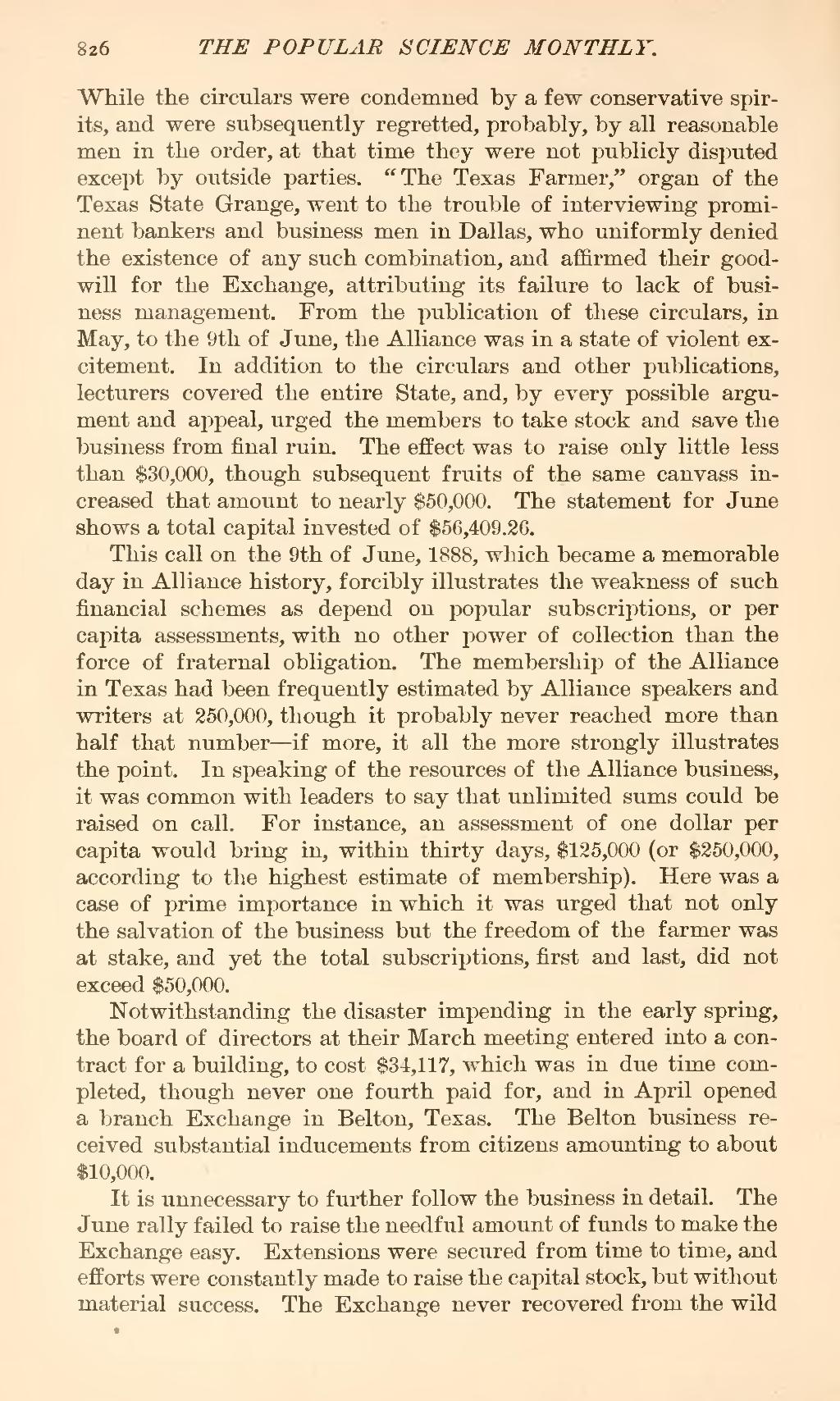While the circulars were condemned by a few conservative spirits, and were subsequently regretted, probably, by all reasonable men in the order, at that time they were not publicly disputed except by outside parties. "The Texas Farmer," organ of the Texas State Grange, went to the trouble of interviewing prominent bankers and business men in Dallas, who uniformly denied the existence of any such combination, and affirmed their goodwill for the Exchange, attributing its failure to lack of business management. From the publication of these circulars, in May, to the 9th of June, the Alliance was in a state of violent excitement. In addition to the circulars and other publications, lecturers covered the entire State, and, by every possible argument and appeal, urged the members to take stock and save the business from final ruin. The effect was to raise only little less than $30,000, though subsequent fruits of the same canvass increased that amount to nearly $50,000. The statement for June shows a total capital invested of $56,409.26.
This call on the 9th of June, 1888, which became a memorable day in Alliance history, forcibly illustrates the weakness of such financial schemes as depend on popular subscriptions, or per capita assessments, with no other power of collection than the force of fraternal obligation. The membership of the Alliance in Texas had been frequently estimated by Alliance speakers and writers at 250,000, though it probably never reached more than half that number—if more, it all the more strongly illustrates the point. In speaking of the resources of the Alliance business, it was common with leaders to say that unlimited sums could be raised on call. For instance, an assessment of one dollar per capita would bring in, within thirty days, $125,000 (or $250,000, according to the highest estimate of membership). Here was a case of prime importance in which it was urged that not only the salvation of the business but the freedom of the farmer was at stake, and yet the total subscriptions, first and last, did not exceed $50,000.
Notwithstanding the disaster impending in the early spring, the board of directors at their March meeting entered into a contract for a building, to cost $34,117, which was in due time completed, though never one fourth paid for, and in April opened a branch Exchange in Belton, Texas. The Belton business received substantial inducements from citizens amounting to about $10,000.
It is unnecessary to further follow the business in detail. The June rally failed to raise the needful amount of funds to make the Exchange easy. Extensions were secured from time to time, and efforts were constantly made to raise the capital stock, but without material success. The Exchange never recovered from the wild

